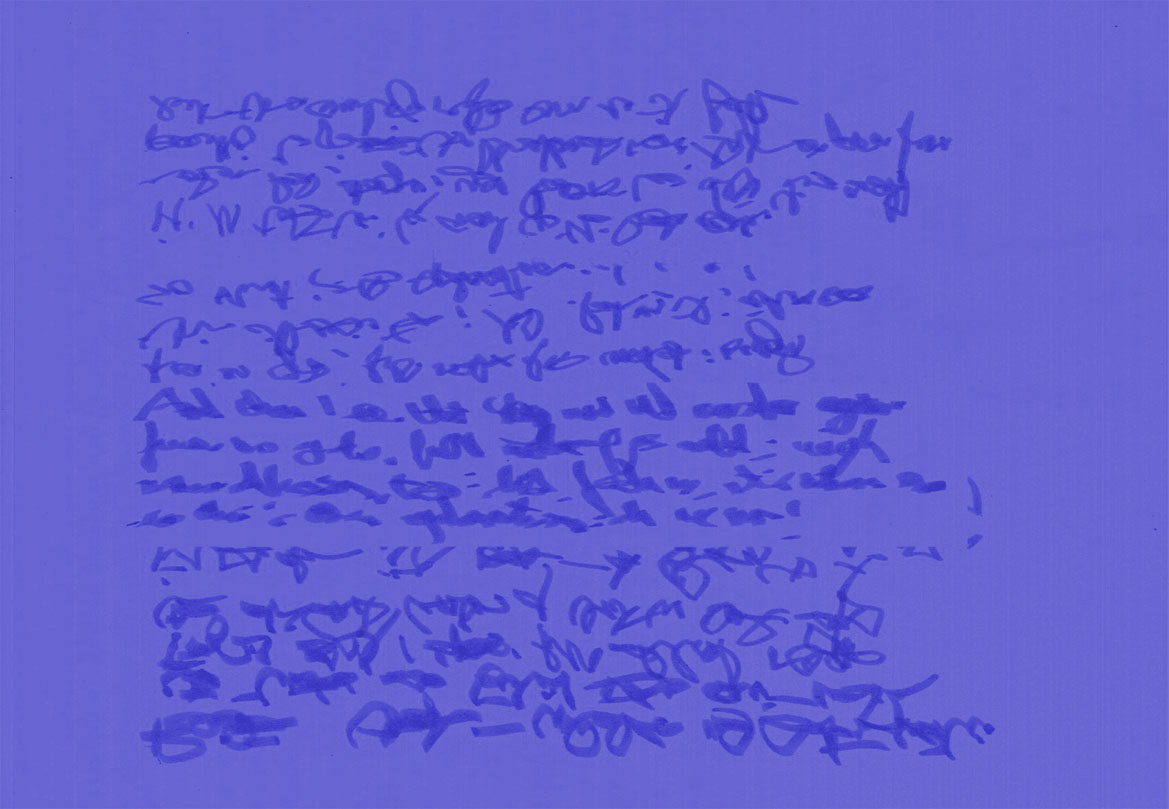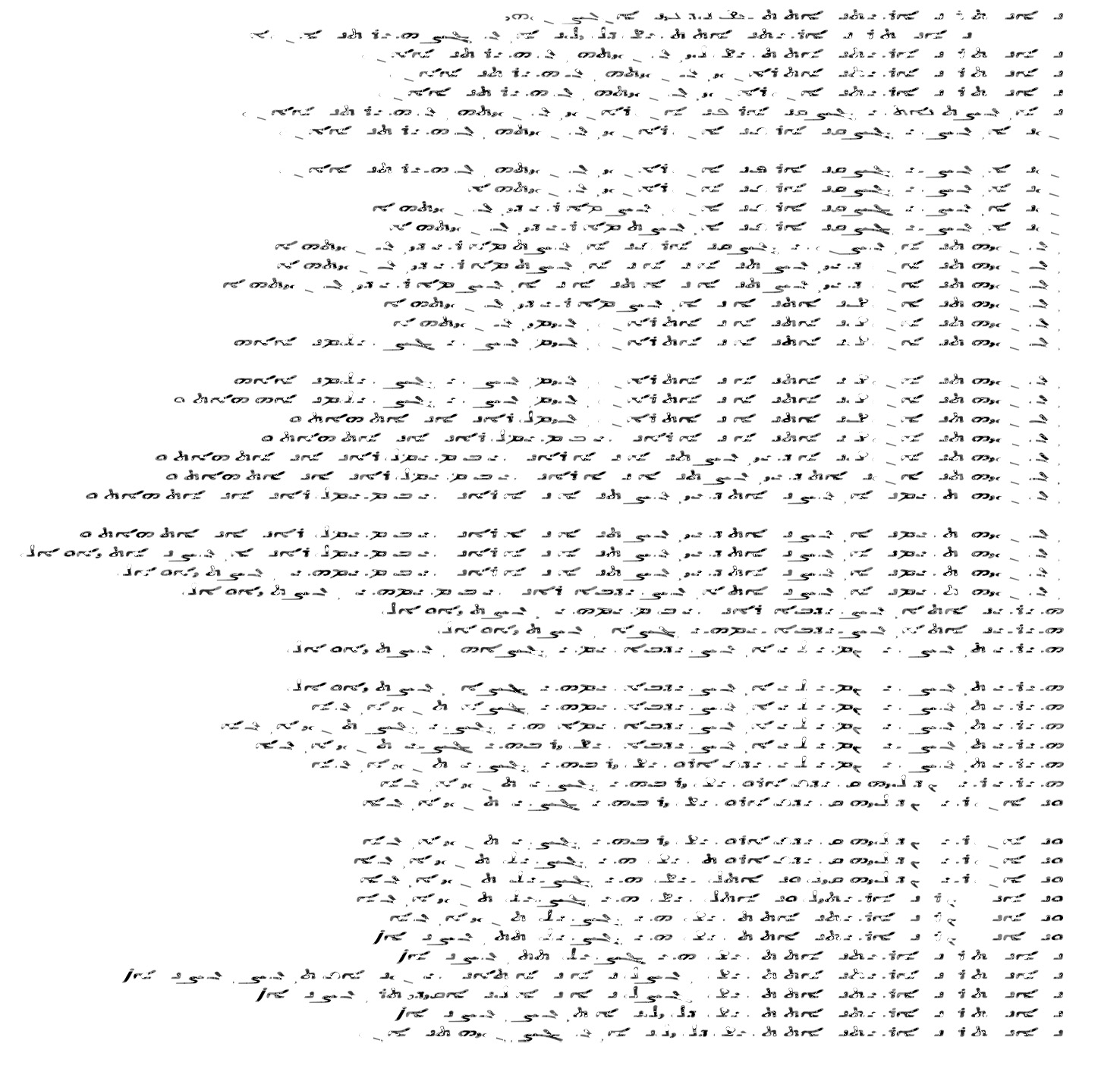Well, he doesn’t care much for consistency with names, so I don’t see why I should. You know what they say about signifiers anyway. So, here, whoever I am, I am, all bright eyed & perky, ready to critique the whole bloody mess now so fortunately behind us.
And on what basis, I hear my academic friends ask. On the business of having been dragged through the whole briar patch, start to finish & beyond, that’s how. I’m no follower of any head cults – the fact this name was used to stand for that of a ripped apart toy dog indicates the problem, not a viewpoint – which was a difficult one on that occasion, I can tell you.
Let’s start negative, carrying on from Little Friend Sarah. The whole thing’s relationship to any other people than Our Poet, let alone to the many female people it mentions, is odd – there are acts of calling out to specific individuals, in some world outside the poem (hi there!), as family, friends, poets (hmm? maybe). Do you believe this? I hear nothing. These shouts are silent. These people don’t actually inhabit this poem as it lays its pretensions out. An interesting try, and we can’t blame the poem so much as its instigator. Personal not textual weakness here.
Within the poem, names occur & often recur (like mine and yours, Sarah). Do we have any sense of our existence? Are we used in a way which enables us to inhabit as human beings this space we’ve been put into? I haven’t experienced this. We can have another of your “cunning avant-garde tricks” again here – all demonstrably textual illusion. Yeah, yeah, yeah. Water offa . . . I tinks we knows dis one, squire. Indistinguishable though from wasted opportunities to deal with any higher order complexities than playground games with levels of meaning. There’s lots of stuff, yes, about people – but no people, just names there. No wonder the nearest approach to them is as vagrants, or unlikely revenants, scrambling up a Kentish beach, illegal immigrants in the populist fantasy.
So the whole political line trails off here also. A politics not based on actual living people is just what, to give him his credit, Our Poet warns us against. But if he can’t manage it either, you’d have to be a profound Adorno adorer to find this enterprise worth pursuing any further. He’s not writing an ideological critique of society & culture & poetry, he’s writing a poem (while occasionally indeed pissing worthwhilely on the pretensions of such critiques).
Utopia occurs in pieces, many of them so damaged as to be valueless (a C.A G.T. again). There’s cooking, a far more popular & useful art than poetry. There’s the consequent communal eating. There’s happy hippy child rearing. There are moments of communal action. There’s hanging around in various urban spaces. There are isolated but frequent pretty visual images (some entoptic). There’s a warm sticky cosy messiness of language, which, OK, at times is worthy of note. (Did you really not think that, Mr Veerses?)
Am I (were they?) (were you?) expecting too much from all this? If we think of what a poem can do, does this do it? Well, probably not much. It’s too long, with an excess of glutinous connective tissue produced by the ritual operations Our Poet compelled himself to engage in – a good way of cutting off personal responsibility. “You can’t criticise this, it really is a non human delusion set”: C.A-G.T.#3. It could have been either much more disturbing, a genuinely holothurian experience, or even more boring (also a genuine holothurian experience). I expect, in fact I know, he fiddled his rules too much. But the gamble which might have justified all this non neurotypical glossogenic apparatus failed to come off. The very existence of this piece of writing here demonstrates such, don’t you think?
Think of this then as the stake thrust into the defeated revenant’s heart to still & extinguish it for ever. Or the trepanger’s trident thrust into the bêche-de-mer & uplifting it into a dry & empty eternity. He, Our Poet, had thought (characterologically privileged information here) of a third sequence. Thank god (or whoever, whatever, nameless etc) that’s just not possible now. The returned dead of Old Albion shall be stuck here still, in Our Little Ingerlund (Prime Minister & Lord Protector: Msieur Farage, 1st Marquess of Thanet). The poem cannot prevent that one bit.
Can any poem prevent a future? This tries at times. As Paulina, I feel bound to advise you to take the notion of the recurrence throughout all history of the emergence of high status elites as a larger scale cycle than the class conflict process – dependent on wishful idealist thinking on Charlie Marx’s part. Where we end up is always determined by the application of coercive power, not any other factor. That’s pretty low level & obvious stuff.
So it may not lead now to “our completed expansion.” Whatever might, it’s probably not going to be a poem. It might be some of the emotional ideations invoked in the poem & mediated through its language – though such feelings can lead, & have led more often, to nightmare destruction rather than communitarian paradise. As Our Poet likes to point out, when state structures fail (like beginning now), power usually devolves to those best suited to grasp it – those most willing and able to steal & kill. Might be wiser to try & avoid that stage. And think too, my little friends, of what the 2011 Riots which lie behind much of these poems, & much maybe of your politics, actually achieved: a few deaths, a lot of broken glass, a temporary redistribution of trainers &c. Maybe some urban regeneration projects. And at the end free passes for police murder yet again.
But things are not unavoidable any more than avoidable. Migration, vagrancy, community coming into existence in resistance – OK, these too will exist & survive. Maybe we can applaud how this poem hymns them. That might be worthwhile. And some of the recipes are good. I like the mackerel & cabbage, and would make the Yuletide Pud (but not at bloody Xmas please!). Perhaps, as well, you may get some sense of a writing trying constantly to reinvent itself – following itself but open to (yeah of course, through mere symbolic sampling of) what is around it as language flux, image & ideation & as these drive the process on. C.A-G.T.#4. Some success, at times. Its instability & failure thus laudable. C.A-G.T.#5. Yeah, maybe too easy as much as too difficult. Mere tricks – like all the hard bought canting wisdom of the “socially rejected”.
Despite what he once said, I don’t teach. You learn, from what you will. Take it as you want. No more tricks but yours now.

